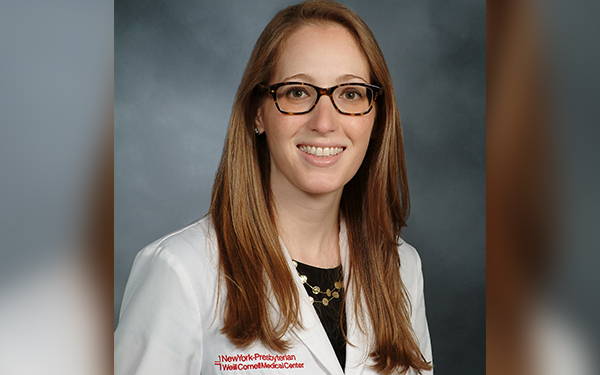Silvana Pannain. MD is an American Board of Obesity Medicine (ABOM) Diplomate, answers questions regarding the importance of an obesity medicine physician.
What unique skill set can the obesity medicine physician bring to the bariatric surgical setting?
Obesity is a complex, multifactorial disease which encompasses and interacts with multiple medicine specialties. Therefore, it is not surprising that Obesity Medicine Physicians come from various backgrounds including endocrinology, gastroenterology, internal medicine, family medicine, and others. Obesity Medicine Physicians have committed part or all of their career to treat this serious condition.
Obesity is a chronic, progressive disease and is best treated in a chronic care model of care delivered through the coordinated work of an obesity care team. This includes both medical weight management and in the bariatric surgical setting. The medical specialist will evaluate for secondary causes of weight gain including medications and other endocrine disorders such as hypothyroidism, Cushing’s syndrome, and polycystic ovarian syndrome among others. The Obesity Medicine Physician will provide a medication review, will utilize obesity pharmacotherapy and is qualified in managing the patient’s medications to favor weight loss and prevent weight gain. Weight changes may also affect the doses required for certain medications and the Obesity Medicine Physician can assist with medication titration as weight loss occurs.
The Obesity Medicine Physician as part of the comprehensive care team is also key in the bariatric surgical setting where they play a pivotal role in the peri-operative management of obesity associated comorbidities, as well as work with the surgeons in monitoring the weight loss outcomes and managing the post-surgical weight regain. The Obesity Medicine Physician can complement busy surgical practices in supporting the patients in their weight loss surgery journey and post-surgical care. Today there is a choice of bariatric surgery procedures for our patients and we have learned that the various bariatric surgeries may have different metabolic outcomes. While we are far from precision medicine, we have gained a better understanding that with regards to bariatric surgery procedures one size does not fit all. This is especially true in our most complicated patients with obesity related comorbidities in an advanced stage. The Obesity Medicine Physician can partner with the surgeon in guiding the patients in the choice of the type of procedure to ultimately optimize the metabolic outcomes.
What impact can the obesity medicine physician have on patient outcomes?
Patients who undertake a surgical weight loss journey are embarking on considerable changes: they are facing a lifetime commitment to lifestyle change. Additionally, both the patients and their doctors need to prepare for the large and often rapid metabolic changes and effects on obesity-related comorbidities. In some cases, these changes can be dramatic and rapid after the surgery and the Obesity Medicine Physician can assist with optimization of these co-morbidities (including medication changes or de-escalation after surgery). Bariatric surgery has long-term metabolic and cardiovascular effects including effects on diabetes, lipids, hypertension, bone metabolism , sleep, liver disease. The Obesity Medicine Physician, working closely with the bariatric surgeons, can ensure an integrated approach to support the patients in their weight loss journey and in the management of weight and weight-related comorbidities peri-operatively and long term.
Have you had the experience of working with a bariatric surgeon?
Since 2012, I have established a clinic at my institution, which offers pre-surgical weight loss and optimization of diabetes, hypertension and lipid disease before and after bariatric surgery. The clinic directly collaborates with the Minimally Invasive Weight Loss Surgery Program in guiding patients through the bariatric procedure, follow-up care, and adjustment period. It offers medically supervised pre-surgical weight loss as per insurance requirements, and for diabetics provides aggressive glycemic control to shorten time to surgery and decrease risk of post-surgical infections. This approach represents a “one-stop shop” for weight loss and optimization of obesity related comorbidities prior to bariatric surgery. Affiliated with this clinic, I have established a specialized inpatient consultation service (the post-bariatric surgery transition service), which provides support for a safe transition of the diabetes and blood pressure medication regimen in the post–bariatric surgery inpatient setting, and in the first few months thereafter in the outpatient setting. All diabetics undergoing bariatric surgery are now referred to this specialized inpatient service. Additionally, the post bariatric surgery outpatient clinic assists the surgeons in monitoring the weight loss response to the bariatric procedure, and the patients’ compliance with the recommended lifestyle regimens.
Are there any clinical findings or evidence-based research supporting the value of obesity medicine physicians and bariatric surgeons working together?
So far, we have reviews and guidelines available which try to define the role of the obesity specialists or the endocrinologist in bariatric surgery 1-3 but there aren’t large studies looking at outcomes of bariatric surgery practices involving integrated Obesity Medicine Physicians versus those who don’t. Therefore, clearly research in this area is needed. In fact, not only should weight and metabolic outcomes be evaluated but also patients’ overall experience and confidence around the surgery should be assessed.
While bariatric surgery leads to superior weight loss and has been shown to be cost effective, among all patients who would benefit, only a very small percent of patients today undergoes bariatric surgery procedures. A 2015 systematic review published in JAMA showed that patient and referring practitioner knowledge about the safety and effectiveness of bariatric surgery are important barriers to bariatric surgery use. 4. It is conceivable that patients receiving care by an Obesity Medicine Physician are more likely to receive the necessary education and guidance in considering the weight loss surgery.
What is the value of working with an ABOM Diplomate specifically?
With obesity medicine today still being a relatively young field, the care of patients with excessive weight is not yet standardized across the board. Obesity practices come in different flavors and styles. These include: those which are based mostly on lifestyle modifications; others on protein sparing very low calorie diets; some rely minimally on behavioral therapy; and others have behaviorists on staff. Further, despite obesity being a serious and progressive disease, the use of pharmacotherapy is not universal and not always evidence based. The ABOM assures that its diplomates have completed a substantial amount of obesity-related continuing medical education and passed a certification examination which is written by experts in multiple subspecialties of obesity medicine, spanning from basic physiology/pathophysiology, nutrition, behavioral medicine, pharmacotherapy and bariatric surgery, to mention a few. Working with an ABOM diplomate assures quality and evidence-based practice, which should be the norm for all diseases.
- Mechanick JI, Youdim A, Jones DB, et al. Clinical practice guidelines for the perioperative nutritional, metabolic, and nonsurgical support of the bariatric surgery patient–2013 update: cosponsored by American Association of Clinical Endocrinologists, The Obesity Society, and American Society for Metabolic & Bariatric Surgery. Obesity (Silver Spring) 2013;21 Suppl 1:S1-27.
- Heber D, Greenway FL, Kaplan LM, et al. Endocrine and nutritional management of the post-bariatric surgery patient: an Endocrine Society Clinical Practice Guideline. J Clin Endocrinol Metab 2010;95:4823-43.
- Mechanick JI. Bariatric surgery and the role of the clinical endocrinologist: 2011 update. Endocr Pract 2011;17:788-97.
- Funk LM, Jolles S, Fischer LE, Voils CI. Patient and Referring Practitioner Characteristics Associated With the Likelihood of Undergoing Bariatric Surgery: A Systematic Review. JAMA Surg 2015;150:999-1005.

Dr. Silvana Pannain is an Associate Professor in the Section of Endocrinology, Diabetes and Metabolism at the University of Chicago and the founder and director of Chicago Weight, the medical weight management program at the same institution. Under her role, Dr. Pannain has introduced obesity medicine education at the University of Chicago by lecturing at the College, the School of Medicine, and the Residency and Fellowship Programs. Dr. Pannain’s mission at her institution is to advocate for patients with excess weight. She aims to help close the gap of obesity medicine knowledge in the training at the University of Chicago and to spread the idea that weight control should become a priority for all physicians, that obesity is a chronic but treatable disease, and that any provider should take charge of addressing this disease at some level by providing specialized obesity care or simply increasing awareness and guiding patients to access appropriate care for their excess weight.






Leave A Comment
You must be logged in to post a comment.